Shop the article

Gen Z and Film Photography: Is It A Trend?
By Paul McKay
Many in our community will know that I spend a large part of my time attempting to drum up support for film photography. Specifically I try to get folks outside of the normal ‘analogue’ circuit to pay attention to the benefits of shooting film - replicating the way our music compatriots get regular and positive coverage on the growth of vinyl. So I was thrilled to get a call from the Guardian newspaper recently! They were writing a piece on the resurgence of point-and-shoot cameras with Gen Z celebrities and wanted to understand more about the reasons behind this observable trend.
It is a wonderfully-written summary of why people shoot film, weaving celebrity interests together with cycles of fashion and the problems of AI aesthetics. Many of you were kind enough to fill in a survey to inform the article - including a statistic that was directly quoted! - but inevitably there were a lot of interesting data points that didn’t make it into the final piece.
So I would like to expand on some of the themes from the Guardian - as well as dig deeper into the results of the survey you completed - to help illustrate the passion of modern film shooters and the link with Gen Z.
Who are Gen Z and how did they learn about photography?
Gen Z is a demographic term typically used to describe people born between 1997 and 2012. In the Western world this means they are the first generation to grow up with access to the Internet and portable digital devices - and it is this context that most research and marketing studies have found the most intriguing.

Tom: my Gen Z Warehouse Supervisor! Shooting with a Lomomatic 110, but captured on Lomography Turquoise 120 and a Holga camera
For analogue shooters there is an obvious reason why Gen Z will have a different experience of photography than any generation before. 2001 (when the first Gen Z were about to start school but most had not yet been born) was significant for two reasons. Firstly, the digital revolution took its first big photography scalp with Polaroid selling its headquarters and then filing bankruptcy. Secondly, this was the last year that 35mm film volumes were stable across the globe. The improving performance, marketing, and branding of digital cameras caused a precipitous drop in film sales from the end of 2001 onwards.
In 2012 (the final year for Gen Z to be born) the unthinkable happened and Kodak declared bankruptcy, an apparent watershed moment for analogue business models. Compact digital cameras were in every handbag and backpack, DSLRs were the ‘must-have’ tech, and the iPhone 5 was released with an 8MP rear camera as standard. It was also the year that Facebook acquired Instagram for $1bn.
What does this mean in real terms? It means that Gen Z (probably):
- Had their first baby photos taken on digital technology instead of analogue
- Weren’t taught to load a film camera as a child
- Never went with parents to drop off films at a high street store
- Had an iPhone or Android smartphone as their first personal tech device (instead of a Tamogotchi 😂 Millennials, where you at?!)
- Downloaded and used Instagram as they entered secondary school - if not before
- Reviewed family photos on a screen - not by handing round prints
This is a good place for the important caveat when discussing demographic generalisations: they are generalisations. They assume a level of wealth, privilege and upbringing that is not universal. They implicitly include all of society’s biases. There will be exceptions to each and every conclusion. People are individuals, and not every experience will be captured equally or fairly in a broad-brush approach. However it remains an interesting exercise to understand general trends in markets and cultures, as long as we also remember #NotAllGenZ.

Fundamentally this means that the difference with Gen Z - versus every generation before - is that they learned photography as an instantaneous experience. Taking, viewing, and sharing photos is as easy as taking out your ever-present personal computer and pressing a screen. No delay, no knowledge required, a seamless transition between wanting to take a photo and the photo existing.
The downsides of growing up Gen Z
Let’s put aside the global economy, climate change, and existential threats for a moment (!) and reflect on the impact of growing up in a digital world. Gen Z spend half their waking hours looking at a screen. This stat blows my mind. I know that screentime is a scarily high number for all of us - regardless of demographic - but hitting 50% feels like a significant milestone.
That’s half your waking hours looking at pixels, tricking our brains into understanding them as physical objects (words on a page, people playing sport) and experiencing things as one step removed.
I’m not surprised that there are well-documented impacts to mental health, a fracturing of social communities and skillsets, and increasing levels of anxiety.
I’m also not surprised that part of the response is to invest more leisure time and money into tangible, physical hobbies and interests - board games, vinyl music, and yes film photography. The physicality is also important but so is the authenticity. You can’t really fake or manipulate a strip of developed negatives! Never mind ‘photos, or it didn’t happen’ - instead think ‘film, or the photo itself might not have happened’
Not just Gen Z loves film
The Guardian article rightly noted that the film camera resurge is not driven purely by Gen Z. Most of the celebrities mentioned (Alexa Chung, Rihanna, Taylor Swift) fall into the Millenials bucket 🪣 Even as I write this I see the England Rugby player Maro Itoje appear on my Instagram holding a disposable and shot on a Polaroid camera.

People born in the early 90s or before will have memories of film cameras in their childhood. They will have learned how to load a 35mm camera and known about getting rolls developed in Boots. This means that the pressures to step away from the digital grind is the same (millennials are still on their screens >6 hours per day) but added on top are nostalgia, family memories, and the joy of using physical skills.
Let’s dig into the survey to understand how relatively important each of these concepts are to real life photographers.
What is the reason you shoot film?
One important point before we get into the survey numbers. I didn’t ask people for years of birth to try and bucket them into demographic generations. Firstly because I think it would be a bit creepy! And secondly because when we’re trying to understand something quite specific (the appeal of film photography in a modern world) I’m much more interested in knowing how long you’ve been shooting film.
This is because someone who’s started shooting film in the last year will be responding to different motivations and society trends than someone who’s been using it for >5 years. New passions are different from old habits.
We can probably assume that most people who have taken up film in the past 5 years are Gen Z - but it’s not a perfect map.
With that in mind let’s get started!

The top 3 reasons for shooting film. Percentage of respondents who agreed with the reason showed on the left.
First up - the stat quoted directly in the Guardian - the number one reason that people say that they shoot film is because it ‘helps them slow down’. According to one respondent: “Shooting with film slows me down; it’s a way to pause and reflect. Digital photography tends to make us quick and impatient, with a focus on what comes after the click. In contrast, analogue photography forces you to stop, observe, and make deliberate decisions before pressing the shutter... Personally, I need that moment to pause and consider before I make the image.”
Another person said “Film makes me slow down and consider the image I want to make... As a consequence I feel more connected to the result achieved.” It's also a theme that has been explored in detail by one of our ambassadors in a recent article 'the balance between patience and perfectionism'.

How shooting film makes me feel: calm and still 🧘🏽 Kodak Gold 35mm on a Lomography LC-A film camera
There are two interesting things about this being the top answer:
- When I split the answers by how long people have been shooting film, this is the top answer for both groups: those who have been shooting film for 5 years+ as well as those who only just started. So Gen Z definitely don’t have a monopoly on feeling harried by modern life.
- Despite it being the top choice, only 66% of you actually selected it. Which means that 34% of you don’t feel the appeal of slowing down when it comes to film. And immediately we realise that there’s no single answer, and instead this is a complicated question. Hurrah! We are nuanced individuals after all 😂
When you get into the next few answers the generational differences begin to appear. For folk who have been shooting film for at least 5 years the second most popular answer was ‘to create something physical’.
People talked about the permanence of physical items: “Film is tangible, physical, and great for archiving. I have lost 100's if not 1000's of photos due to crashed computers, faulty hard drives and corrupted SD cards, so I have gone back to film for images I want to keep for future generations.”
There is a clear link between physical objects and mental wellness: “I needed to find peace of mind through a physical process that I can complete from one end to the other and have a physical object at the end. Mentally it helps me order my thoughts and look at the world around me.”

The joy of a physical object: newly developed film
Meanwhile the second most popular answer for our Gen Z approximation was ‘to take unique photos’ and you can clearly hear the cynicism for digital’s false promises: “[For me] Film is all …about the artistic and uniqueness of what is produced whilst digital is just about recording accuracy” Another respondent said that “Film captures memories and emotions, where digital records light values.”

This is one of my favourite photos from 2020. Blurred, with sketchy focus and a massive light leak - but in my mind it captures the emotion of that day perfectly 🥰
Perhaps unsurprisingly our younger respondents highlighted the thrill of learning new skills: “I love the test … using the older technology leaves little room for error.”
A third of all film shooters see their hobby as a means of ‘connecting with the past’ - and a quarter use it as part of their routine to ‘look after mental health’.
Someone pointed out “The delayed gratification of film is so helpful for me when you’re surrounded by so much information and the instant/real-time nature of social media. Slowing down to find 1 image you’re happy with and then not being able to see it, judge it, or take another 5 and just carry on enjoying the day is so important for my mental health.”
What ISN’T a reason to shoot film?
And now let’s reflect on the answers that didn’t get much reaction.
Less than 5% of people said that shooting film would 'advance my career' - even when I narrowed it down to people who work in photography full or part time. So there is no real belief that analogue photography is going to provide a livelihood (although there are exceptions!) This is predominantly a hobby and means of artistic expression away from making money.

Commercial value: zero. Personal enjoyment: INFINITE! Shot on Kodak Ektachrome 35mm and E6 developed by Analogue Wonderland
I admit that I did chuckle when I saw that while 10% of Gen Z said that shooting film helps them 'connect with loved ones' - via photo projects, sharing special moments, and going on photowalks - that number halved with older film shooters! Clearly we get to a point when an evening alone in a darkroom is the best form of socialising.
There's also a good joke in the community that always comes up when I post these kind of surveys on social media: "I shoot film because it's easy, convenient, and cheap 😅' riffing of the obvious fact that it's all the opposite. Which I find revealing in itself! The self-awareness that theses aren't the things that matter (plus there are always to save money on film!)
What’s next for film?
The Guardian article highlighted the June launch of the Pentax 17 35mm camera, alongside Harman’s recent multi-million pound investment into film manufacturing, as examples of the future of analogue photography. (More Ilford HP5? Great news!) There are also countless small businesses and entrepreneurs springing up with innovative ideas and plans: like Donald from KEKS light meters.
While some of the social trends might be fleeting - the return of the ‘indie sleaze’ era? - the underlying desire to connect with people, our surroundings, and to ‘slow down’ isn’t about to fade.
The swell of interest in analogue technology and processes is clearly intergenerational, and this will insulate it from short-term ebbs and flows. Put simply: we’re not relying on a celebrity or hashtag to keep film alive, and this is absolutely a good thing!

One of the recent events on our Big Film Photowalk - multigenerational inspiration, education and fun!
Thank you so much to everyone who completed the survey, especially those who took the time to write some accompanying detail. The Guardian writers were overwhelmed by the positive nature of your comments and enthusiasm. Although only a tiny fraction of your input made it into the national article I’m confident that there will be more to come.
Onwards, upwards and - as always - happy shooting!
Ready to dive in?
Keep Reading
View all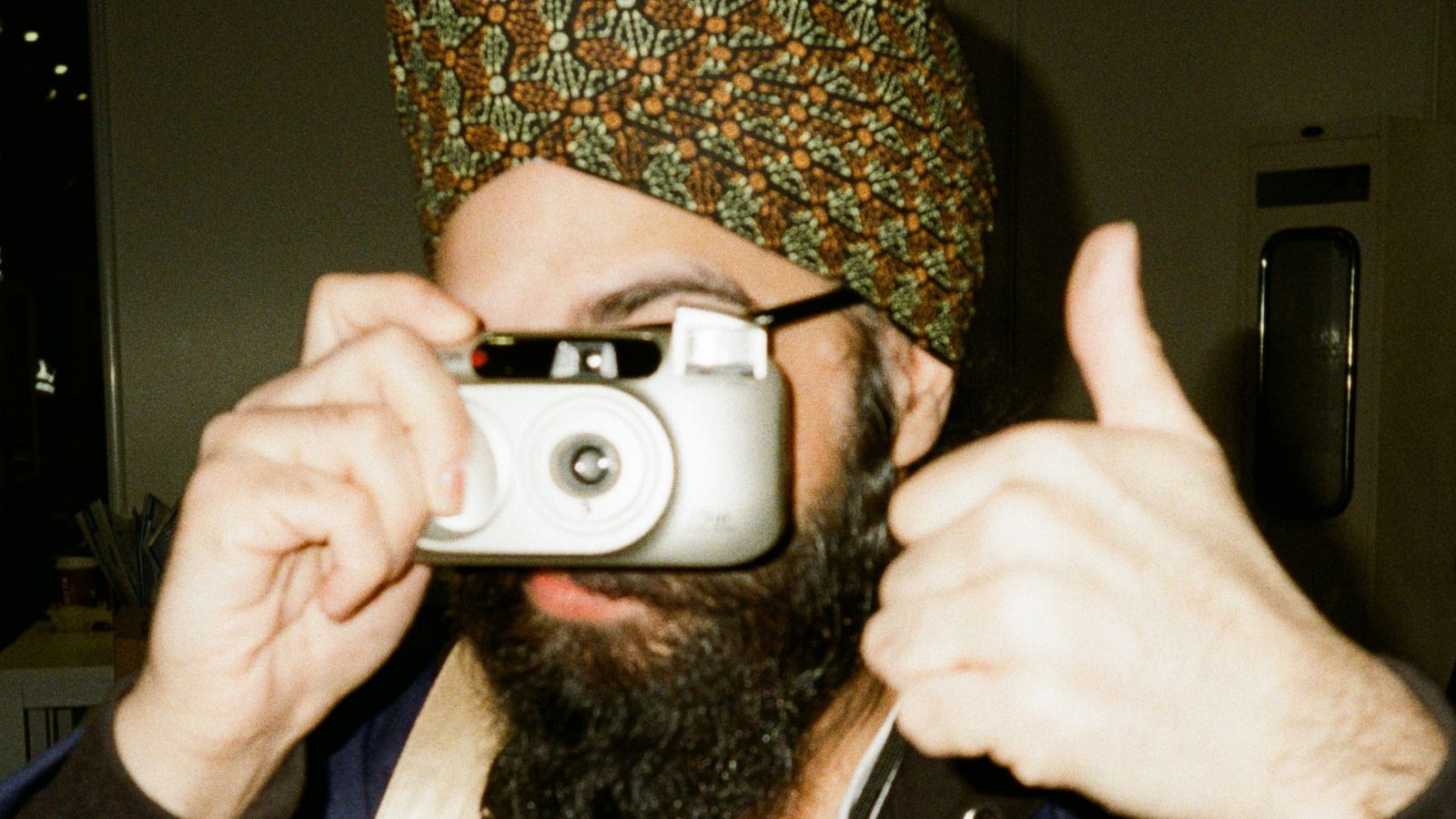
The new series: Analogue Adventures
Submit your personal Analogue Adventure - and if chosen we will work together to turn your experience into an article on our site and social posts on our account for posting with the analogue community!
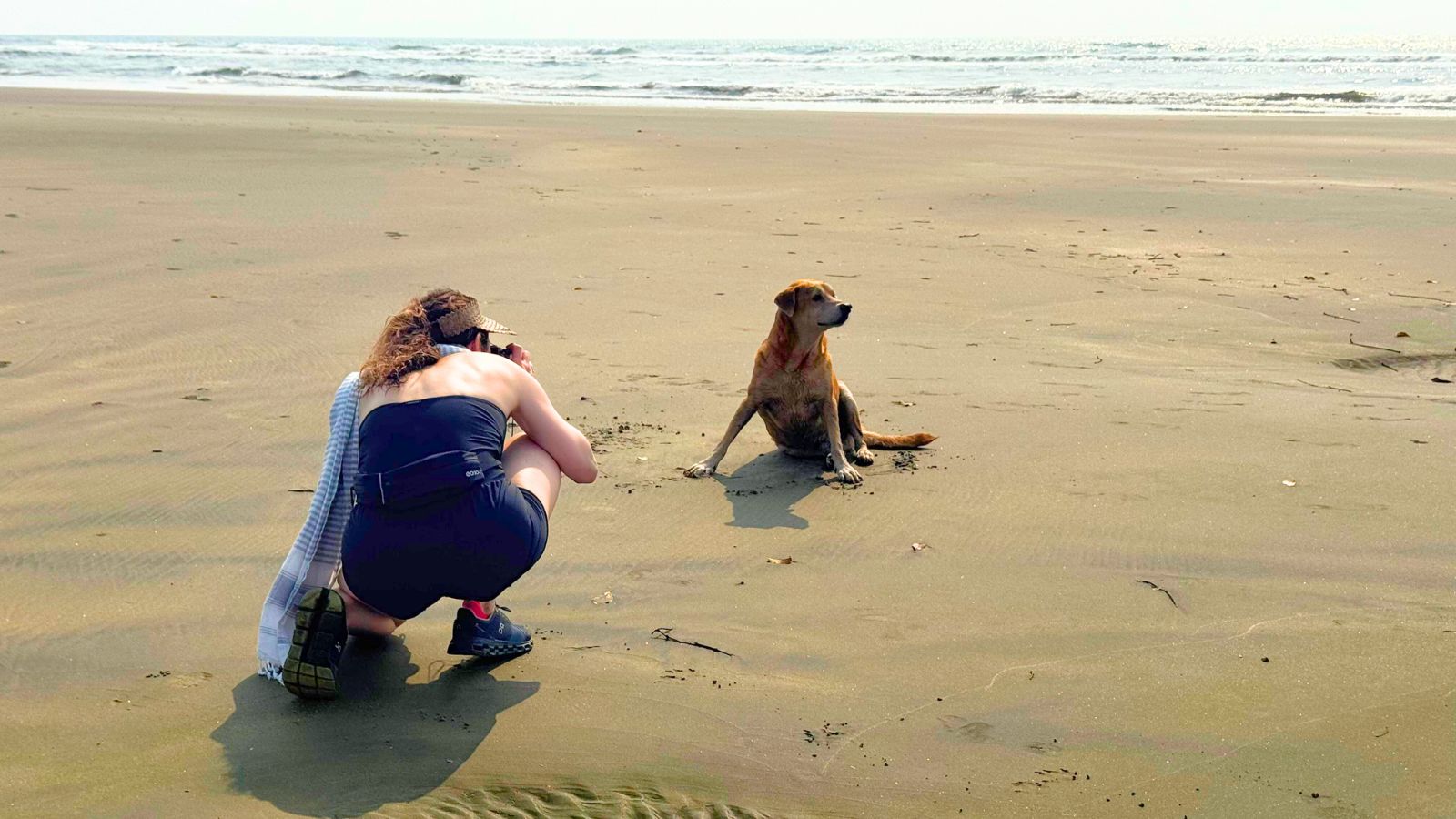
Analogue Adventures: Nic in India
The first in our new series of community articles, find out how film photographer Nic got on with a Pentax 17 camera in India!

Another award for our lab: Photography News 2025!
We're delighted to share the news that our film lab has won the Editor's Choice award from Photography News for 'Best Processing Lab'!
Subscribe to our newsletter 💌
Sign up for our newsletter to stay up to date on film photography news, sales and events:
Free Tracked Shipping
On all UK orders over £50
Passion For Film
An unbeatable range and an on-site lab
Our Customers Trust Us
Thousands of independent 5* reviews
All Deliveries are Carbon Neutral
Independently audited and verified by Planet
- Opens in a new window.




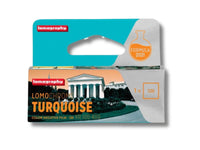
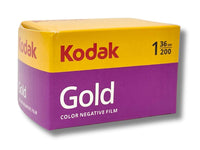
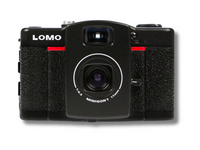
12 Comments -
Geoff • -
Cliff • -
Peter Cordiner • -
Robert McIntyre • -
I have been shooting film for 50 years [ heroes; Cartier Bresson, Doisneau, Jane Bown [no relation]. There is always an outstanding shot “just around the corner” if you are alert and equipped_and with film you will have a permanent record Cliff Bown •
1 2 3 →
It gives me great satisfaction to be able to afford and use film gear like my Nikon F2a and Hasselblad that I could only dream about when they were current in the 80s. So thanks to digital for that.
Also, I’m free from the constant marketing pressures of almost annual “upgrades” to digital cameras.
And those factors are almost as big as source of enjoyment as the qualities of the film medium and working process itself.
If the film photography I’ve been working with since college days in the 60s gets a new lease of life, with film stock staying available and labs like AW thriving, thanks to it becoming hip cool and trendy, then I’m grateful for that too.
The age demographic thing is interesting and, to me, quite revealing. I’ll own up to being 60. Photography started when I was 8. I tend to move between analogue and digital depending what I shoot, but mostly I’ve gone back to analogue because it’s more challenging, more thoughtful and makes you consider the photo and not the shutter button. I still learn from other photographers, including people new to analogue photography whose ideas inspire me as much as anyone else. What this analogue revival has done more than anything has reminded me why i picked up a camera in the first place, and that’s joy. No joy in shooting 500 digital pics in one shoot is there?
Thanks for communicating the details of the very interesting Guardian article. It’s good to know that analogue has such growing popularity and support, and that so many other photographers share similar values to my own in relation to the resurgence of analogue photography 🙂.
I think there is a danger here that we become a little dewy-eyed about film photography. I am very concerned about the return and rise of the disposable camera which is an ecological problem. Their use and “endorsement” by celebrities seems to me to run contrary to the Gen Z concerns about the environment. This is in danger of being a fashion accessory which will go the way of fast fashion. The return of (reusable) point and shoot cameras and more sophisticated offerings is welcome but film photography requires hazardous chemicals which need careful disposal. Is this something that we want to continue to inflict on the environment? The balance between the environmetal impact of analogue and digital photography is not clear to me. I still love photography of any sort but I think there needs to be some consideration of the long term. This was a good article nonetheless. Well done.